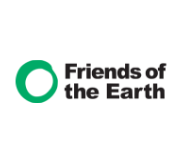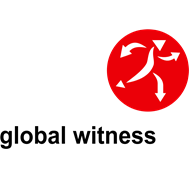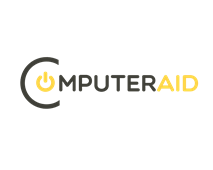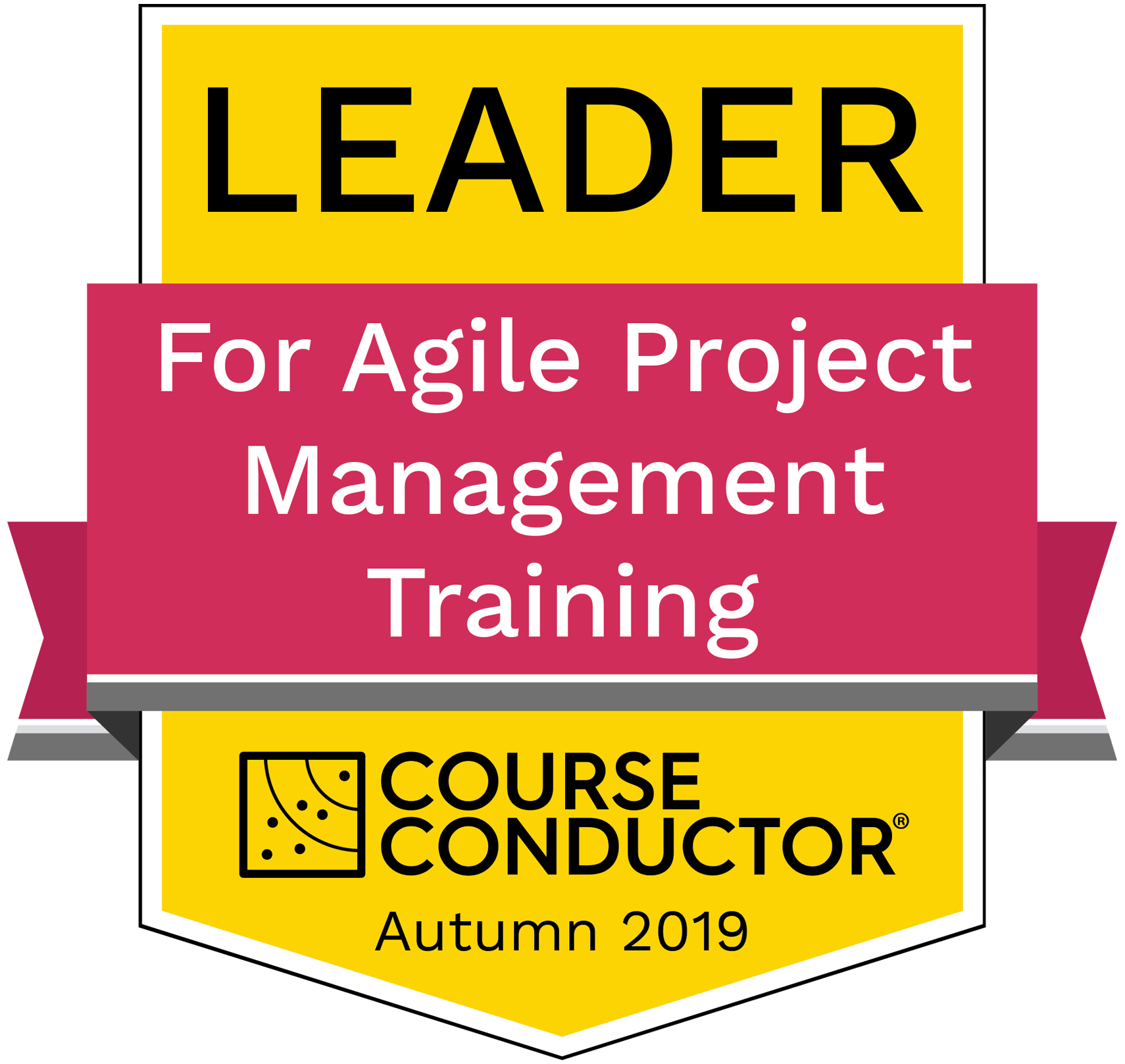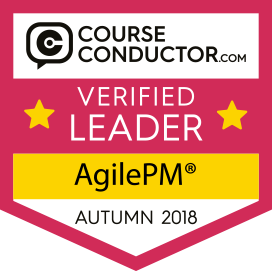
Introduction
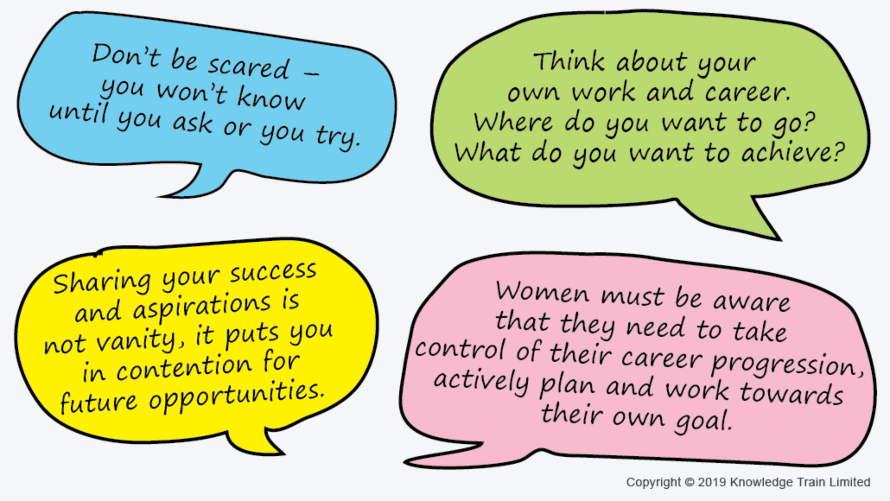
Deanne Earle
I’m Deanne Earle, a Project Consultant specializing in delivering business technology projects, Director of Unlike Before Ltd and a founding member of The Glass Breakers.
What advice do you have for women in project management?
Don’t be scared – you won’t know until you ask or you try.
Think about and understand the wider picture of your project and encourage the team you’re working with to do the same. Everyone has a job to do and when people understand where and how their piece fits into the bigger picture they gain a different perspective and it adds greater meaning to their contribution.
Be visible, believe your contribution counts, speak up, make yourself heard, put yourself forward, and, as Sheryl Sandberg says, sit at the table. Ask for what you need and get involved in different activities to see what you do and don’t like. Read, read a lot: books, articles, whitepapers, industry publications and recreational material. Write your own materials and publish it on your own or others’ blogs or websites. Attend conferences and if you’re interested get involved in presenting.
Think about your own work and project management career. Where do you want to go? What do you want to achieve? Develop yourself in your organisation and as an individual.
The best piece of business advice I ever received was from the Chairman of a company I used to work for. We had a great rapport and one day he said to me “Deanne, I know you don’t ‘do’ politics and that’s OK but every now and again raise your head up to observe what’s going on around you. You don’t have to participate but you’ll stay informed and be better able to adjust what you’re doing.” It has served me well.
What positive aspects can women take from, and give back to, project management?
Being organized and having heightened awareness. Those leading projects know what’s happening now and what’s coming up in the future. Role models in the profession show others how to lead and manage but most importantly how to recognize when more of one than the other is needed.
There are many opportunities to learn and make a difference and feedback is important to that learning process. Positive feedback and encouragement is important but constructive feedback is imperative. It’s through constructive feedback that we really learn and are inspired to improve.
What is The Glass Breakers group?
Like many other Stiletto Networks, The Glass Breakers is a group that’s focused on more than just meeting more people, swapping business cards and expanding a non-productive contact list. It’s a powerfully strong mastermind group where everyone’s ready and willing to make an introduction, answer questions, share a laugh and cheer you on. The Glass Breakers is a diverse group of professionals serious about collaboration and contributing to each other as colleagues, peers and friends. It’s like mentoring on steroids.
How else can women raise their profiles in their roles and industry?
Strike up conversations with people. Opportunities are everywhere, and you never know what might come out of a casual conversation. Actively participate in groups and activities outside your daily routine. If one group doesn’t work for you try another. Attend conferences and consider further education or project management course.
On the job performance and project success speaks volumes. Ask those you’ve worked with for testimonials as these give others insight into your capabilities and builds your profile. Start a blog and write regularly. Write some articles for other websites or share your thoughts and opinions as comments on others.
Get involved in Social Media. Twitter has a very active project management group under the hashtag #pmchat (project management chat) and #pmot (project managers on twitter). Have an excellent head and shoulder picture of yourself. It doesn’t have to be taken by a professional so long as it represents you in a professional way.
Is there any industry sector more likely to be male dominated?
My work is focused on the business end of technology projects. While it’s quite male dominated it’s less so now than say 20 years ago. Women have been steadily rising through organization hierarchies and females are being actively encouraged to study technology after school. Construction, the Oil industry, Motor Racing and Heavy Industries such as mining, steel and heavy machinery are still likely to be predominantly male.
That said women are forever pushing forward into sectors they would have been redirected or actively discouraged from doing a generation ago.
How has the leadership style of your peers and colleagues influenced you?
On reflection my approach and leadership style has been shaped by the people I work with rather than by a particular industry. Over the past 25+ years I’ve worked with a diverse range of people across many different countries and cultures. It’s this experience that has a profound effect on how you work with others. One of the biggest lessons anyone can learn very early on in their working life is that one approach or style of leadership and management does not fit all. We must constantly adapt and adjust to situations and people. I’ve learned this myself and see it successfully applied on a daily basis by my peers and colleagues.
Deanne Earle is Director of Unlike Before Ltd, a founding member of The Glass Breakers global women’s network, a published author, and a sought-after international consultant and expert in the areas of project delivery, management, change and leadership.
Lindsay Scott
I’m Lindsay Scott, Director of Arras People, a project management recruitment and careers specialist in the UK and I’m also a member of The Glassbreakers.
Is the number of women looking for project management roles on the increase?
At Arras People we’ve been monitoring many stats about UK practitioners, over the last nine years of the Project Management Benchmark Report the gender splits between male and female practitioners has been roughly 70:30 in favour of men. Interestingly in this year’s Benchmark Report we focused on the next generation and were surprised to see current student ratios at 53:47 – in favour of women. Whilst this is current student level ratios we will have to wait and see how the ratios end up in the next 5 – 10 years.
Do you think that women need to make extra effort to “stand out” from their male counterparts when looking for a project management role?
Personally, I don’t think women need to be making any special efforts – after all, would a male project manager be even thinking about gender when it comes to finding a new position? No, what they are thinking about is ‘am I better than the competition and do I have the right kind of experience and skills this company is looking for?’ With over 12 years’ experience in recruitment for project practitioners I would say that the most marginalised group is actually over 50 and male.
How would you advise women to develop their CV for a project management role?
Again, the advice doesn’t differ for male or female. It’s all about writing a CV that a hirer will want to read. That’s the mistake that many people make – they write a CV from their own perspective, failing to remember that actually they need to put themselves in the hirer’s shoes.
Why do you think the project management field is male dominated?
I think it’s a legacy thing – the project management industry in the UK decades ago was heavily associated with traditional male dominated sectors – construction, rail, manufacturing etc. Today, project management is across nearly every sector you can think of, so naturally you will see an increase in female project managers. I also think the education establishments have also helped in opening up these once male dominated sectors to female workers. More and more women are working in these fields and it is only natural that they will be considered to PM posts alongside their male counterparts.
Do you think there’s a “glass ceiling” for women in project management?
The way that it can manifest itself in the project management industry is for example; women who choose to take a career break to bring up a family, invariably lose a few years of experience which does put them behind males of a similar age. I guess with this kind of situation, the woman is at a disadvantage but then again it is personal choice.
From your experience of project management recruitment, do you think men and women are given an equal chance with employment?
As mentioned before I think the over 50 and male thing could be true but it is difficult to tell sometimes. What I mean by that is often the over 50 and male candidate has convinced themselves that they are not going to get the job and that they’re being discriminated against before they’ve even applied. It’s a reason or excuse. Actually, a negative or ‘hard done by’ attitude is just as likely to cost you the job as your age.
The only place where I see – mainly women – having problems is the route back into work as a working mother. The industry as a whole does not really have many part-time PM roles, making it difficult in the early days back to work where getting the balance between work and family life is tricky. It’s funny because I don’t see why project management doesn’t produce more part-time opportunities because it is achievable.
How much do you think the industry has improved in terms of gender equality in project management?
In the odd cases where candidates have spoken about their experiences, it seems the most impacted area is that of the project management office (PMO) and some of the roles still being seen as a secretarial role and therefore something that is more naturally suited to a female. In all honesty, these kinds of out-of-date bigoted views just seem archaic to me and it’s only a matter of time before these types of people will be retiring! Bring on the next generation!
Lindsay Scott is Director of Arras People, the programme and project management recruitment specialists and a member of The Glassbreakers.
Teri Okoro
I’m the Chair of APM’s Women in Project Management (WIPM) and the founder and director of a construction design and project consultancy. I’m also member of the Construction Industry Council’s diversity panel and a gender and diversity commentator.
How did WIPM come about?
The idea for WIPM was proposed by Jean Bilsborough, an APM member who wished to create a forum for women to develop their skills and network.
There was awareness at the time that there were no clear initiatives for ‘encouraging, developing and introducing more women into project management’. The well attended inaugural meeting was held in 1993 and the group has been in existence ever since.
Its initial mission statement was broad – to develop the role of women in project management and the develop project management through the role of women by education, research, networking and dissemination.
The founding team were confident that ‘forward looking’ organisations would view ‘wealth of untapped potential in the female workforce’ and that work culture was moving away from ‘command and control’ to greater emphasis on teamwork which suited female attributes.
What does WIPM do?
The context within which WIPM operates today is not hugely dissimilar from when it was founded. We however revisited our strategy at the end of last year in advance of our 21st anniversary and our mission now focus on four main strands.
Firstly, raising our profile – which has been greatly enhanced in this anniversary year through a reinvigorated communications team. We wish to be active members of the project management community and represent the voice of women. We plan to profile P3 managers at different levels and from different sectors on our website.
Secondly, promoting a no barriers future and encouraging all project managers to succeed in their careers by providing resources and expertise. We recently ran a webinar to highlight the FAPM (Fellow) and RPP (Registered project profession) category of membership which has low levels of representation for women and will run a pilot support group for those applying later this year.
Thirdly – engaging and responding to project professionals, it is only by listening that we can tailor our work and initiatives. Feedback is received directly by our bi-annual survey, surveys after events, at events, during ongoing engagement and communication, via email, also through social media.
Fourthly and not the least, we aim to build a collaborative community and grow dynamic networks and links with like-minded organisations. It is important that good practice is shared and efforts are not duplicated. We appreciate the time our members and committee give and wish to use it effectively. One likeminded organization we have recently been in contact with can link up women project personnel when they are travelling and away from home.
WIPM organizes regular personal development and networking events, webinars and joint events (such as the one day workshop with the University of Oxford Institute of Gender Studies, Lady Margaret Hall) as well as biannual conferences. We are planning a video for schools and universities to encourage more girls and greater diversity in our profession. It is intended that additional videos aimed at project professionals follow.
An initiative we are actively supporting is the Inspire the Future campaign. Encouraging more project professionals and women particularly to register to volunteer one day a year to attend a local school to talk about P3M as a career during my term as Chair, I have endeavoured to strengthen our regional links. We have had anniversary branded events arranged across the UK from South West to South East, North East and Scotland with topics ranging from career progression, change and diversity, to the Glasgow games, its legacy and how diversity was managed.
Do you have any words of advice for women project managers?
Women must be aware that they need to take control of their career progression, actively plan and work towards their own goal. Much survey data indicates that many women have entered project management by default, having not planned it but excel nevertheless.
Whilst focusing on current challenges and associated work satisfaction is great, planning for the next level is critical. There should be awareness also that what gets you to this current point will not necessarily take you to the next level. The next level is likely to differ from one individual to another.
Sharing your success and aspirations is not vanity, it puts you in contention for future opportunities. A mentor or sponsor is also beneficial at all levels.
Teri Okoro is Chair of APM’s Women in Project Management and a founding director of TOCA a construction design and project consultancy. She is also a member of the Construction Industry Council diversity panel, non-executive director, speaker and commentator on gender and diversity matters.
Naomi Caietti
I’m Naomi Caietti, CEO of The Glass Breakers, a global speaker, blogger, corporate consultant, author and expert on personal growth and leadership development for project/program/portfolio managers.
How were the members selected for The Glass Breakers group?
Many of the members met virtually on twitter, had worked on projects together, formed a bond over Twitter and respected the diversity of our backgrounds. Twitter has caused many ideas to flourish and bloom and this was one of them.
We spent a little time getting to know each other via social media connecting on Twitter, Linked In and email. This allowed each member to determine that this group was the right fit. We launched our virtual, global group with the following vision and mission: to encourage excellence in projects, leadership and management and to inspire women to lead.
How is this group different from a normal network group?
We’re a global group of ten powerful women business leaders in the areas of projects, leadership and management. We recognize the challenges women face and agreed it’s our commitment to bring about awareness and change in our global community.
We want to grow to be a personal board of advisors and act as a collaborative of wisdom, knowledge and experience each member will tap into and share to reach our own personal goals. We will also encourage our core tenets by knowledge sharing, promoting active engagement and appreciating diversity.
As a woman in project management have you experienced a ‘glass ceiling’?
Actually, quite the contrary; project managers are in high demand these days with the rebounding economy in many industries. Women have lot of choices for a career in project management. Opportunities are available for women to excel into top executive positions as Project Director, Program Manager, Project Management Office (PMO) Manager and Portfolio Manager.
I’ve had the unique pleasure as a Project Management Professional (PMP®) to serve in various senior/executive leadership roles. These included accountability and responsibility for State-wide implementation of large reportable projects in California, strategic global programs for PMI in the area of leadership, awards, component, community, and community of practice programs for various global companies and women’s networks.
Have you ever been discriminated against whilst working as a project manager because of your gender?
No, actually the opposite; equal opportunity is available for any qualified project management practitioner these days.
Working in Information Technology as a female project manager can be challenging and requires a thick skin and different leadership style to work in a male dominated profession. Each project manager should find the right fit to their job to be successful; find the organization that will value your talents.
As the profession of project management has matured I have focused on putting together a plan to sit for the exam and get my credential as a Project Management Professional (PMP). There were four things I did early on that helped propel my leadership forward as a project manager: involvement with my local PMI chapter and chapter leadership, networking with a global group of project managers in communities of practice, managing more complex enterprise and state-wide projects, programs and stakeholders and development of a personal growth and development plan that included continued leadership training.
Do you think there is still gender inequality within project management? If so, please share your thoughts or experiences.
Actually, both women and men have had challenges in this tough economy finding suitable work. The economy is rebounding now so project management professionals are high in demand in many industries. Women are continuing to make their mark in the project management profession and have positively influenced the profession over the last two decades.
Today, women are leading projects worldwide as proven leaders, advocates for advancement of project management in their organizations, and are represented in many industries such as information technology, healthcare, aerospace, construction (bridges, buildings, highways) and as entrepreneurial consultants. Certainly, there are still industries such as oil and gas, engineering, financial services to name a few that may still be primarily male dominated; women will need strong leadership skills to be effective these environments.
In our global economy, organizations are looking for project management experts, leaders of high performing teams and great communicators that can manage people, processes and politics; women have the soft skills to be top candidates for many of these great job opportunities.
In your opinion, what positive aspects would do women bring to project management?
Emotional intelligence, communication, relationship-building and soft skills are natural qualities women excel in. Based on the things I’ve read many of the qualities women possess are noted as the top qualities most leaders possess such as President, CIO, CEOs, COOs.
Women don’t need permission to lead; they need to step up, have a voice, sit at the table and find good sponsors to help guide them in their career path. There is no shortage of statistics and reports that indicate that inclusion of women on boards and in leadership roles improves an organizations’ bottom line.
Naomi Caietti is the Founder and CEO of The Glass Breakers. Naomi Caietti is a project manager with 27+ years of public and private information technology (IT) project leadership expertise.
Alexia Nalewaik
I am Alexia Nalewaik, Principal Consultant of QS Requin Corporation and a founding member of The GlassBreakers. My specialties are project performance review, risk management, and audit.
What advice do you have for women in project management?
The best piece of advice I ever received was from the corporate lawyer at my first company. One day, out of the blue, he said, “If you want to succeed, get as many letters after your name as you can”. At the time, I couldn’t begin to imagine where I would get a project management certification, or what I would get one in. Five years later, I received my first professional certification (in project controls, my area of expertise) and others followed soon after.
Being certified, attending conferences, publishing technical papers, and serving professional associations have contributed greatly to my career and visibility.
So my advice is to find your niche. It might not happen right away; the path to success is hardly ever a straight line. In fact, several years ago, I mapped the career progression of a few dozen people in my industry. It was fascinating – no two paths were the same.
What positive aspects can women take from, and give back to, project management?
My inspiration is found in making a difference. Being able to see proof that I have improved the organization, helped the project or program succeed, taught others. Doing what I love enables me to give fully to project management & leadership.
I don’t categorize ‘soft’ or ‘hard’ skills as being inherently male or female. There are elements that are necessary in project management, regardless of gender, such as being organized, communicating clearly, focusing on the end result, and understanding stakeholders.
How is The Glass Breakers different from other networking groups?
I love that I can reach out, at any time, to members of the group when I have a question. For example, I recently wanted to craft a news article, but did not know what news outlet might be interested in printing it. Within minutes, I had leads provided by members of the Glass Breakers network.
We share stories; it seems there is always an ear or two available to listen and, in doing so, we learn from each other. We definitely have a good laugh. The people in the network are diverse; there are many different aspects of project management, so within our group there is a lot of advice available on a number of topics.
Do women need mentors or champions?
There is a big difference between mentors, champions, and role models. Everywhere, I see “mentoring” being implemented in companies and professional associations. Mentors can give advice, share their experiences, and be a good listener. But an article last year rang true for me, when it said that (at a certain point in their career) women don’t need mentors. They need champions. A champion is someone who has the ability to actively contribute to a woman’s advancement, to recommend a woman for promotion or recognition, instead of playing the more passive role of the mentor.
How can women raise their profiles in their roles and industry?
Take a role in the professional institution of your choice. You’ll probably start on a committee, then work your way up. By doing this, you will add to your skillsets: you will network, gain management and leadership experience, become comfortable fixing problems, and learn to communicate well. I was fortunate that I held positions in student and “younger member” committees early in my career and gained such skills long before I needed them in professional practice.
Never stop learning. I ended up with a late-in-life PhD because I came across I problem I was passionate about and wanted to solve. The corollary is that you must share your knowledge. Don’t keep it to yourself, don’t hoard it. Give advice to others. Every question asked is a teaching opportunity. People will not just appreciate it; you will become known as a go-to person for your expertise and approachability.
Create your professional profile on LinkedIn, keep it up to date, and relentlessly self-promote. Ask for recommendations on LinkedIn, add links to articles or blogs you have written, and highlight awards.
Is there any industry sector more likely to be male dominated?
The majority of my work is on construction projects and mega-programs. It is definitely male-dominated. The keys to success, for me, have been continuous learning, knowledge, and experience. Rigorous documentation, and data, too. I am reminded of a life lesson from my parents: “People lie. Numbers don’t.” That has never failed me.
Women are making incredible strides in my field which is quantity surveying and project controls. It just so happens that this year represents a historic and unprecedented convergence of female top leadership for our professional institutions.
Dr. Alexia Nalewaik is Principal Consultant of QS Requin Corporation. She is a project controls director and quantity surveyor with over 20 years of risk management, owner representation, and cost management experience.



